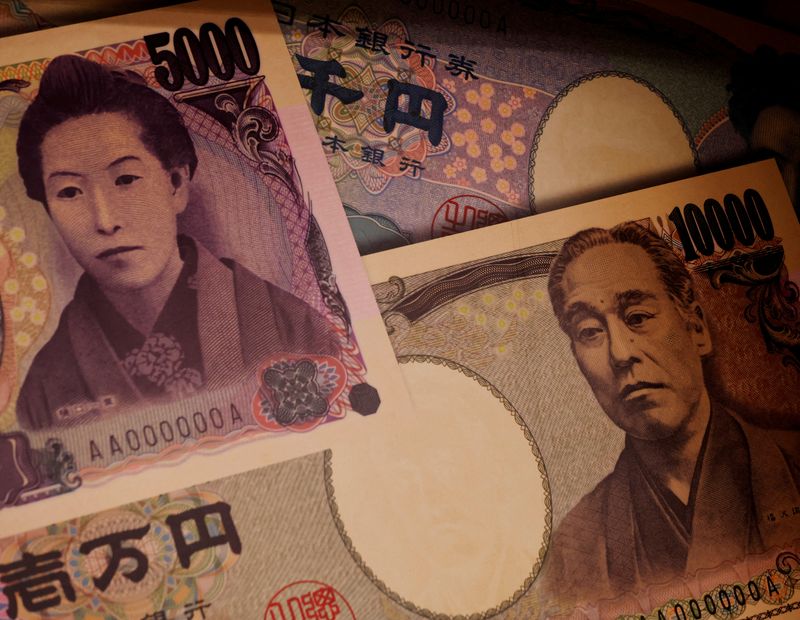By Leika Kihara
TOKYO (Reuters) -Japan stands ready to take all possible measures to counter excessively volatile currency movements, Chief Cabinet Secretary Yoshimasa Hayashi said on Tuesday, keeping markets alert to the possibility of renewed intervention to support the yen.
Bank of Japan data released on Tuesday showed Tokyo spent 2.14 trillion yen ($13.5 billion) on interventions last Friday. Combined with the estimated amount spent on Thursday, Japan is believed to have bought almost 6 trillion yen through intervention last week.
“It is important that exchange rates move stably to reflect fundamentals. Excessive volatility is undesirable,” Hayashi told a regular news conference before the release of the BOJ data.
“We will closely monitor exchange rate developments and stand ready to take all possible measures,” he said.
Hayashi declined to comment when asked whether Tokyo intervened in the currency market last week to support the yen for two days in a row.
Japanese authorities have recently made it standard practice not to confirm whether or not they have intervened in the foreign exchange market.
But traders suspect Tokyo has intervened in the market to lift a currency that has fallen to a 38-year low, once on Thursday after a cooler-than-expected inflation report in the US caused a jump in the yen. and again on Friday.
The yen rose 3% against the dollar to 157.40 after Thursday’s suspected intervention.
But it lost most of its ground and stood at 158.45 on Tuesday, not far from the 160 mark seen as Japanese authorities’ line for currency intervention.
Some analysts see similarities between last week’s suspected intervention and May 1, when Fed Chairman Jerome Powell’s dovish comments weighed on the dollar.
In both cases, Tokyo likely intervened when the dollar was already trailing against the yen, said Masafumi Yamamoto, chief currency strategist at Mizuho Securities.
“This time the intervention came at a time when the dollar/yen was not necessarily rising sharply,” he said. “This suggests that authorities were more concerned about the level of the yen, which is below 160 (against the dollar), and rather about the speed of the decline.”

While a weak yen provides a boost to exporters, it has become a concern for Japanese policymakers as it hurts consumption by inflating the cost of importing fuel and food.
Markets are turning their attention to the Bank of Japan’s two-day policy meeting ending on July 31, with some traders betting that interest rates could be raised from current near-zero levels to help slow the yen’s decline.
($1 = 158.4400 yen)


